 New Jersey’s Compassionate Release Act is supposed to do one thing well. It exists to ensure incarceration does not become a death sentence for someone who is seriously ill, medically vulnerable, or otherwise unable to be safely housed. The New Jersey Supreme Court’s decision in State v. Celestine Payne is a reminder, though, that medical eligibility is not the end of the analysis. Even when a person meets the statute’s medical requirements and shows low public safety risk, release remains discretionary. The State can still defeat the motion if it proves extraordinary aggravating circumstances.
New Jersey’s Compassionate Release Act is supposed to do one thing well. It exists to ensure incarceration does not become a death sentence for someone who is seriously ill, medically vulnerable, or otherwise unable to be safely housed. The New Jersey Supreme Court’s decision in State v. Celestine Payne is a reminder, though, that medical eligibility is not the end of the analysis. Even when a person meets the statute’s medical requirements and shows low public safety risk, release remains discretionary. The State can still defeat the motion if it proves extraordinary aggravating circumstances.
Payne is not a close call on facts. The opinion recounts a disturbing pattern of calculated violence tied to a broader scheme involving life-insurance fraud, manipulation of family and friends, and multiple acts of violence, including an attempted murder and two murders. The Court highlighted the planning, the use of people around her, and the brutality of what happened, including the allegation that, after one victim survived, Payne went to the hospital, posed as his mother, and signed a do-not-resuscitate order. The point was not to relitigate guilt. The point was to explain why the State argued this case fell into the narrow category of truly exceptional and rare conduct.
What made the decision legally important is the procedural posture. The trial court found Payne met the Act’s medical and public safety requirements, but still denied release based on what the Supreme Court previously recognized as an extraordinary aggravating factor. The trial court concluded the offense involved conduct that was particularly heinous, cruel, or depraved. The Appellate Division reversed, reasoning that the facts did not meaningfully exceed what courts often see in murder prosecutions. The Supreme Court disagreed and reinstated the denial.
 Hudson County Criminal Lawyer Blog
Hudson County Criminal Lawyer Blog






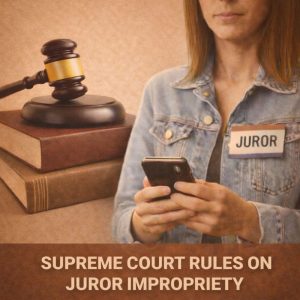 The New Jersey Supreme Court’s decision in
The New Jersey Supreme Court’s decision in 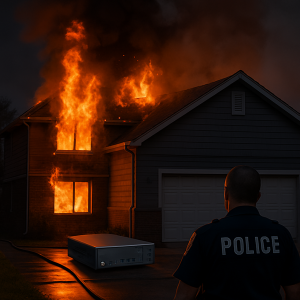 The New Jersey Supreme Court’s December 4, 2025 decision in State v. Caneiro is a big reminder that “exigent circumstances” is not a slogan courts apply in hindsight, but an objective, fact-sensitive test grounded in what officers reasonably knew in the moment. Here, the Court focused on whether the exigent-circumstances exception applied during an active house fire, where officers believed that getting a warrant was impracticable and immediate action was needed to prevent the destruction of evidence located in an attached garage.
The New Jersey Supreme Court’s December 4, 2025 decision in State v. Caneiro is a big reminder that “exigent circumstances” is not a slogan courts apply in hindsight, but an objective, fact-sensitive test grounded in what officers reasonably knew in the moment. Here, the Court focused on whether the exigent-circumstances exception applied during an active house fire, where officers believed that getting a warrant was impracticable and immediate action was needed to prevent the destruction of evidence located in an attached garage.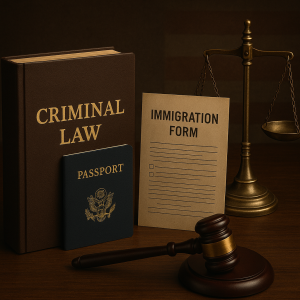 In State v. Juan C. Hernandez-Peralta (decided July 22, 2025), the New Jersey Supreme Court answered a practical question that comes up all the time in criminal practice: how far does a defense lawyer have to go to investigate a client’s immigration status? The Court held that, on the facts of this case, sentencing counsel was not constitutionally ineffective for asking, “Are you a U.S. citizen?”, getting a clear “yes”, and relying on that answer, even though the client later turned out to be a noncitizen who faced deportation.
In State v. Juan C. Hernandez-Peralta (decided July 22, 2025), the New Jersey Supreme Court answered a practical question that comes up all the time in criminal practice: how far does a defense lawyer have to go to investigate a client’s immigration status? The Court held that, on the facts of this case, sentencing counsel was not constitutionally ineffective for asking, “Are you a U.S. citizen?”, getting a clear “yes”, and relying on that answer, even though the client later turned out to be a noncitizen who faced deportation.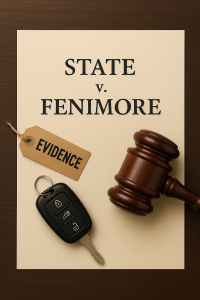 The New Jersey Supreme Court has continued to reinforce the strength of our State Constitution’s warrant protections in its recent decision, State v. Fenimore. The Court unanimously held that the automobile exception does not permit police to conduct a warrantless search of a vehicle once law enforcement has full control over the car, its occupants, and the surrounding environment. In Fenimore, the defendant had been arrested for DWI inside a State Police barracks, the passenger had been removed, officers had possession of the keys, and the vehicle was required to be held for a mandatory twelve-hour impound period under John’s Law. Despite these circumstances, where mobility, safety concerns, and the risk of evidence destruction were completely neutralized, the State Police searched the car in the station parking lot without obtaining a warrant.
The New Jersey Supreme Court has continued to reinforce the strength of our State Constitution’s warrant protections in its recent decision, State v. Fenimore. The Court unanimously held that the automobile exception does not permit police to conduct a warrantless search of a vehicle once law enforcement has full control over the car, its occupants, and the surrounding environment. In Fenimore, the defendant had been arrested for DWI inside a State Police barracks, the passenger had been removed, officers had possession of the keys, and the vehicle was required to be held for a mandatory twelve-hour impound period under John’s Law. Despite these circumstances, where mobility, safety concerns, and the risk of evidence destruction were completely neutralized, the State Police searched the car in the station parking lot without obtaining a warrant.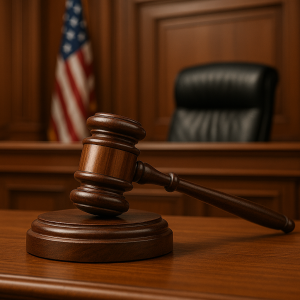 The New Jersey Supreme Court recently issued a major ruling that reshapes how courts and prosecutors must apply the state’s strict Graves Act sentencing rules for gun offenses. In State v. Zaire J. Cromedy (decided August 5, 2025), the Court unanimously held that a conviction under N.J.S.A. 2C:39-5(j), which makes it a first-degree crime for someone with a prior No Early Release Act (NERA) conviction to unlawfully possess a weapon, is not automatically subject to the Graves Act’s mandatory parole-ineligibility period.
The New Jersey Supreme Court recently issued a major ruling that reshapes how courts and prosecutors must apply the state’s strict Graves Act sentencing rules for gun offenses. In State v. Zaire J. Cromedy (decided August 5, 2025), the Court unanimously held that a conviction under N.J.S.A. 2C:39-5(j), which makes it a first-degree crime for someone with a prior No Early Release Act (NERA) conviction to unlawfully possess a weapon, is not automatically subject to the Graves Act’s mandatory parole-ineligibility period.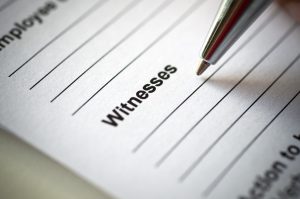 The Supreme Court of New Jersey’s decision in State v. Isaiah J. Knight offers a nuanced examination of the limits of reciprocal discovery in criminal cases, particularly focusing on the circumstances surrounding an affidavit recanting a witness’s previous identification of the defendant as the perpetrator of a crime. The facts of this case play a crucial role in understanding the Court’s rationale and its implications for criminal defense.
The Supreme Court of New Jersey’s decision in State v. Isaiah J. Knight offers a nuanced examination of the limits of reciprocal discovery in criminal cases, particularly focusing on the circumstances surrounding an affidavit recanting a witness’s previous identification of the defendant as the perpetrator of a crime. The facts of this case play a crucial role in understanding the Court’s rationale and its implications for criminal defense.
 In a landmark decision, the New Jersey Supreme Court provided critical insights into the state’s witness tampering statute through the case of State v. William Hill. This case scrutinized the boundaries of lawful communication and witness intimidation, posing significant implications for criminal defense strategies.
In a landmark decision, the New Jersey Supreme Court provided critical insights into the state’s witness tampering statute through the case of State v. William Hill. This case scrutinized the boundaries of lawful communication and witness intimidation, posing significant implications for criminal defense strategies. The Supreme Court of New Jersey’s decision in the case of State v. Curtis L. Gartrell presents a significant analysis of property rights and the Fourth Amendment’s protections against unreasonable searches and seizures. In this case, the court examined the concept of abandonment in the context of a police chase, where the defendant fled and left behind a suitcase containing illegal substances. By abandoning the suitcase, Gartrell relinquished any privacy interest he had in the item, thereby negating his ability to challenge the police’s warrantless search of the suitcase.
The Supreme Court of New Jersey’s decision in the case of State v. Curtis L. Gartrell presents a significant analysis of property rights and the Fourth Amendment’s protections against unreasonable searches and seizures. In this case, the court examined the concept of abandonment in the context of a police chase, where the defendant fled and left behind a suitcase containing illegal substances. By abandoning the suitcase, Gartrell relinquished any privacy interest he had in the item, thereby negating his ability to challenge the police’s warrantless search of the suitcase.